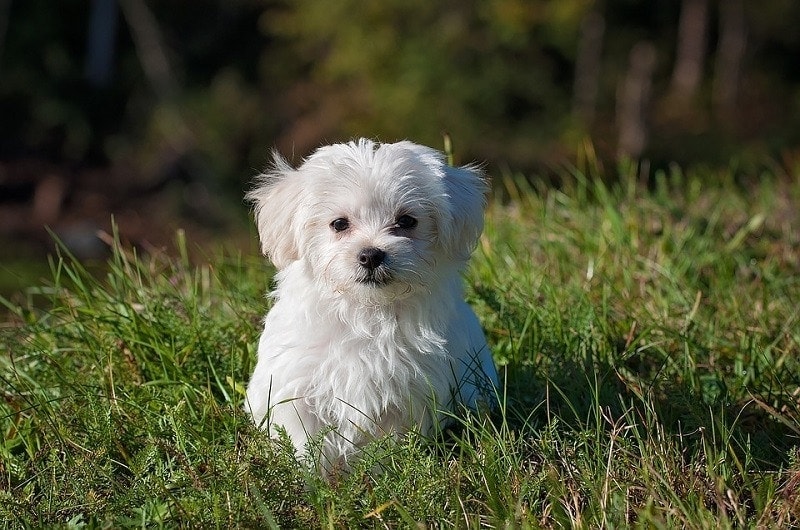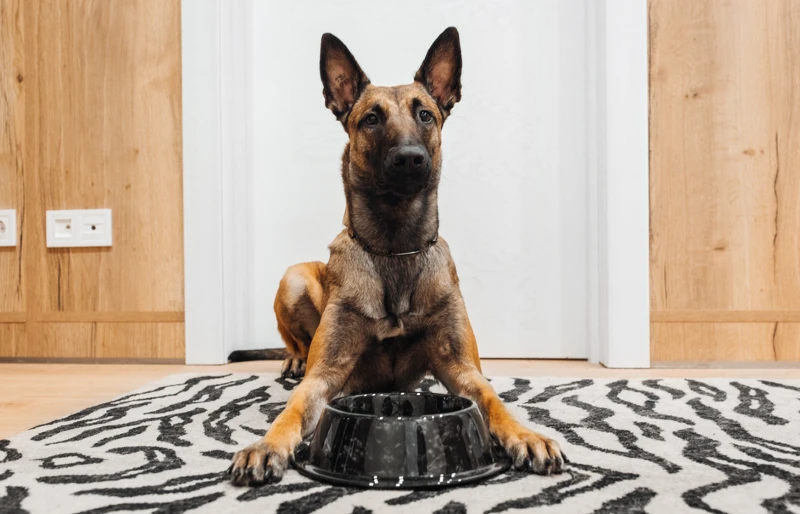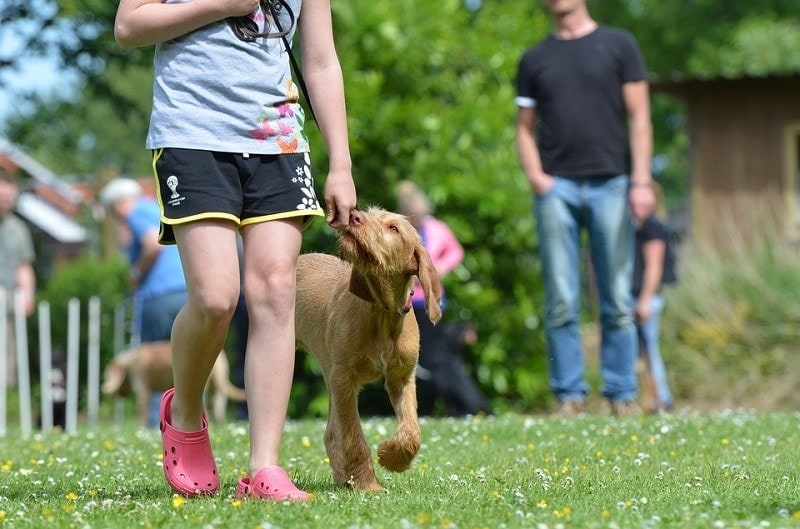Are Maltese Hypoallergenic? Pet Allergies Explained

Updated on

If you’re allergic to dogs, the Maltese might be recommended to you as a hypoallergenic pet. However, while this breed does shed less than most other breeds, the Maltese isn’t hypoallergenic. Someone who is allergic to dogs can still react to a Maltese, even if the dog doesn’t shed very much.
The concept of a hypoallergenic dog is a bit more complicated than many think. Let’s take a look at what pet allergies are, as well as what “hypoallergenic” means.
 What are Pet Allergies?
What are Pet Allergies?
Despite some misconceptions, those with pet allergies are not allergic to pet hair. Instead, they’re allergic to proteins in the dog’s saliva and skin cells. Every dog has saliva and skin cells, even if they don’t shed their hair. These proteins tend to stick most easily to the dead skin cells, allowing them to spread around as dust. For this reason, every dog can cause allergies.
The allergens don’t have to come directly from the dog, either. Skin cells can collect on the floor and anywhere else that dust tends to collect. When someone who is allergic comes into contact with these skin cells, they can develop an allergic reaction.
There are also different types of pet allergies. Not everyone who is allergic to pets is allergic to the same protein. Dogs make a wide variety of proteins, with some dogs only making specific proteins. Therefore, if you’re only allergic to a single protein, it is possible that you aren’t allergic to every dog out there—just some of them.
For example, a male dog’s prostate makes a particular protein. Many people who are allergic to dogs are allergic to this specific protein. However, female dogs don’t make this protein for apparent reasons. Therefore, someone who is allergic to male dogs may not be allergic to female dogs.
There is a reliable blood test that can determine which protein you’re specifically allergic to. If you’re interested in having a dog, it may be in your best interest to have this test done so that you know strictly what dogs you’re allergic to.
You may be able to get a female Maltese without having to worry about allergies at all.

What are Hypoallergenic Dogs?
Hypoallergenic dogs are often marketed as such because they shed less. However, that’s precisely what the concept is—marketing. There is no such thing as a hypoallergenic dog since all dogs have saliva, skin, and proteins. The only true hypoallergenic canine would not have skin or saliva and be entirely protein-less. (And, let’s be honest, that would be a terrifying dog.)
With that said, the saliva and dander a dog sheds tend to stick to the dog’s fur, which allows it to travel far. However, dander is also very good at being airborne, so avoiding hair alone isn’t going to prevent most pet allergies. Instead, you’d have to avoid the pet dander, which is much more challenging.
In fact, one particular study found that there was no difference in the allergen level between homes with hypoallergenic dogs and un-hypoallergenic dogs. However, more research is required to confirm this finding.
In general, hypoallergenic dogs can cause fewer allergy symptoms. However, they aren’t going to reduce allergies.
- Small dogs. Smaller dogs create less dander simply because they’re smaller. They have less skin than larger dogs and often less saliva too. Therefore, these smaller dogs tend to produce fewer allergic reactions.
- Low-shedding dogs. Dogs that shed less also don’t spread their dander around as much, though they will still produce some.
- Spayed or neutered dogs. Intact dogs tend to create more allergy problems than dogs that are spayed or neutered. This is for a few different reasons. Firstly, intact dogs have different hormonal levels than spayed or neutered dogs. Sometimes, this can cause the dog to shed more than usual. This can cause someone’s allergies to become worse. Secondly, some proteins are only produced by intact dogs. If you’re allergic to these proteins specifically, getting a spayed or neutered dog can significantly reduce your allergy symptoms.
 Are Maltese Hypoallergenic?
Are Maltese Hypoallergenic?
So is the Maltese dog hypoallergenic? Based on what hypoallergenic means, Maltese can be considered hypoallergenic dogs. They are smaller, which means they will produce less dander than other dogs. They also shed very little, which further reduces the odds of them causing an allergy flare-up.
Depending on the proteins you’re allergic to, you may want to consider getting a female dog or a neutered male dog. Neutered male dogs also do not produce Can f 5, the particular protein produced by a dog’s prostate gland.
However, it is essential to remember that no dog is going to be completely hypoallergenic. Maltese still create protein, so they can still cause allergies. Luckily, you can do quite a few things to limit the odds of them causing a flare-up of your allergies.

How to Reduce Pet Allergies
There are several simple lifestyle changes that you can do to prevent your allergy symptoms from becoming too bad.
You should start by creating an allergy-free zone somewhere in your home. This should preferably be your bedroom, but it can include other rooms as well. Do not let the pet in these areas reduce the number of allergens there. By spending time in these allergy-free rooms, you may avoid some severe discomfort.
Consider using plenty of HEPA air cleaners throughout your home This will help you clear the pet allergens that are already in your home, which can reduce your allergy symptoms further. Don’t use dander-catching furnishings either, like curtains and carpets. These tend to hold onto dander longer and cause more symptoms as the dander is re-released into the air.
You should also have someone else bathe the pet weekly. This will remove a lot of the dander at its source. Use a sensitive shampoo since you don’t want to irritate your pet’s skin with all the baths. You shouldn’t bathe your pet, as the process may kick up a bit of dander, which can cause your allergy problems. Whenever you get done interacting with your dog, you should wash your hands. Many allergies start when the allergic person touches their face with their hands shortly after touching the dog, transferring allergens to the person’s nose, mouth, and eyes.
There are also several treatments for pet allergies that may help reduce or eliminate your symptoms. There are quite a few medications that are available to try, as well as immunotherapy. Talk to your allergist about your commitment to living with a pet and discuss which method may be best for you.
Many people who are allergic to dogs are also allergic to other things, like grass and pollen. Often, these allergens stack. Even if you’re only exposed to a little bit of pet dander, grass, and pollen, they can all add up to irritate your allergies. If you reduce the amount of pollen and grass you’re exposed to, you may be able to withstand more pet dander.
You may want to consider using Allerpet as well. This product is added to a dog’s fur and is entirely non-toxic. It reduces the amount of dander on your pet, which further reduces your allergy symptoms. It is a scientifically proven formula that can reduce your home’s pet allergen levels by 50%. Plus, a bottle isn’t too expensive and should last quite a while for a Maltese.
 Should Someone with Pet Allergies Get a Maltese?
Should Someone with Pet Allergies Get a Maltese?
Deciding to get a dog when you have pet allergies is a personal decision. You have to weigh the severity of your pet allergies next to your want for a companion. Some people don’t have awful allergies and can quickly mitigate their symptoms by keeping their homes clean and using the proper filters. Allerpet is a reliable product that can reduce allergens as well.
You may decide to take medication to reduce your symptoms or try immunotherapy to get rid of them once and for all.
Either way, if you have allergies and must get a pet, then Maltese is a reliable option. This little dog is better than most other dog breeds out there for those with allergies. They’re smaller, produce less dander, and don’t shed very much in the least.
You Might Also Be Interested In:
- Are Pomeranians Hypoallergenic? What You Need to Know!
- Are Chihuahuas Hypoallergenic? A Complete Guide
Featured Image Credit to: Pezibear, Pixabay
 What are Pet Allergies?
What are Pet Allergies? Are Maltese Hypoallergenic?
Are Maltese Hypoallergenic? Should Someone with Pet Allergies Get a Maltese?
Should Someone with Pet Allergies Get a Maltese?








